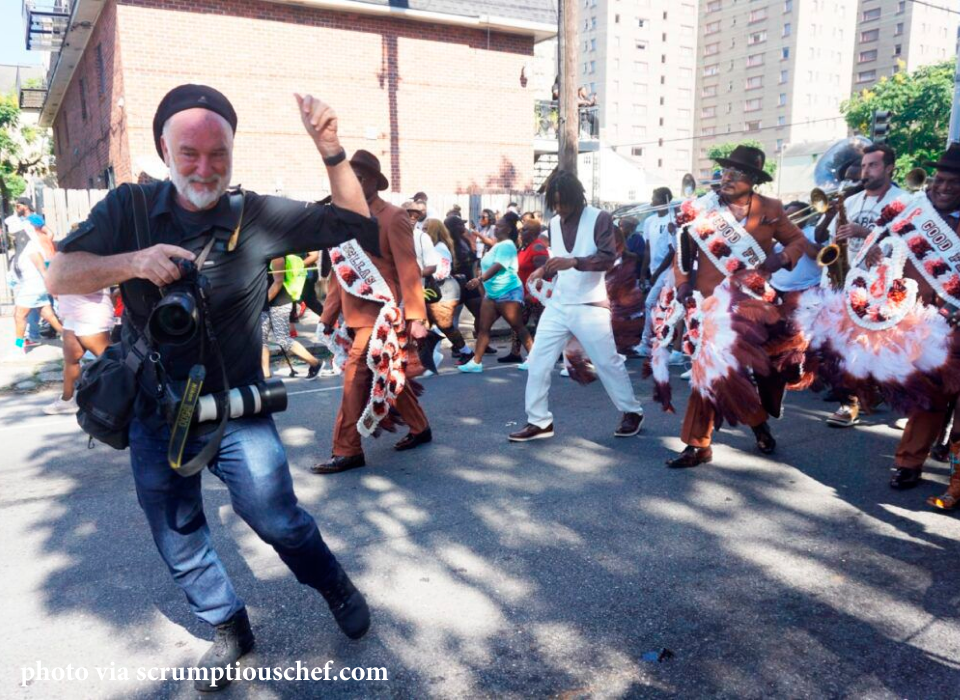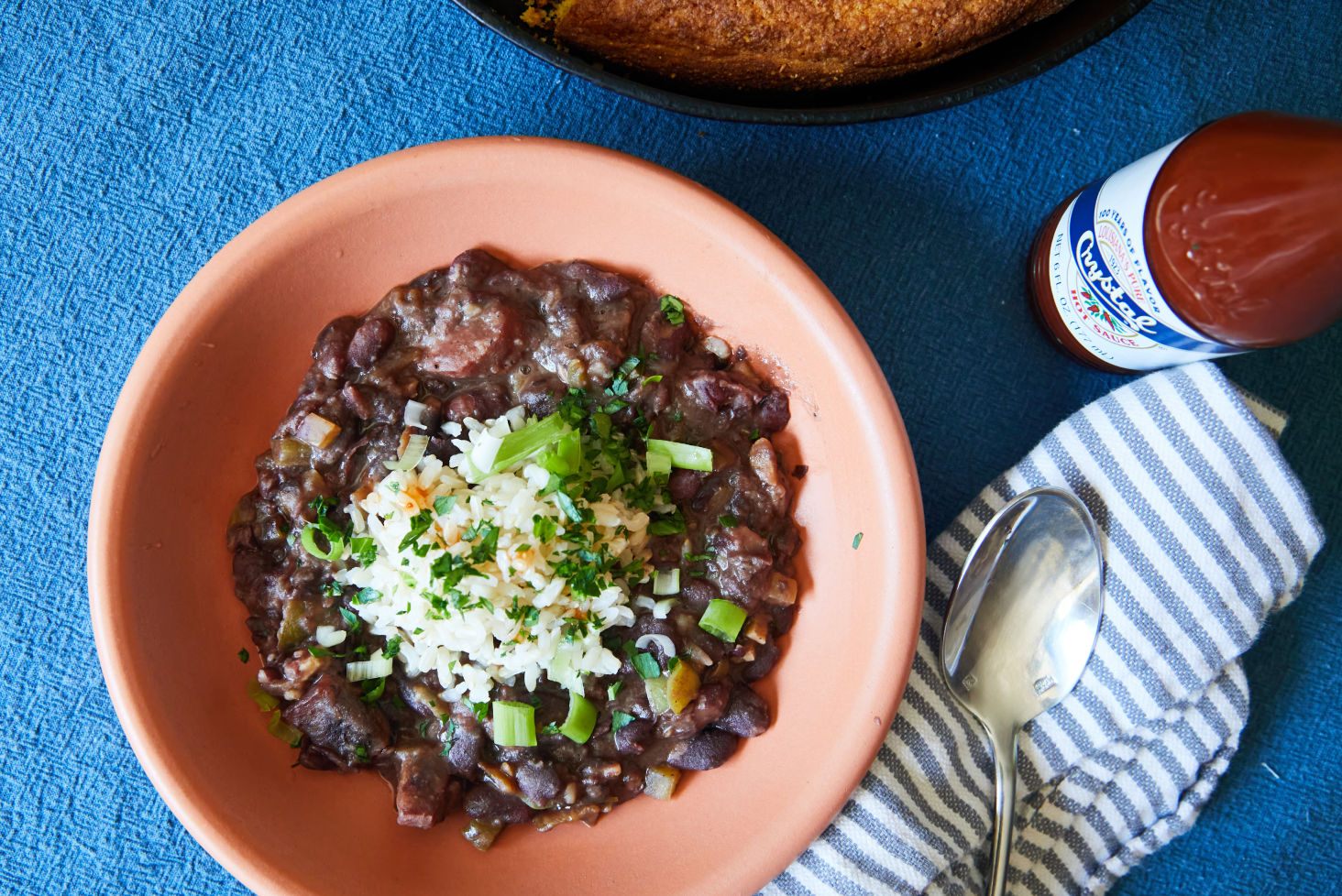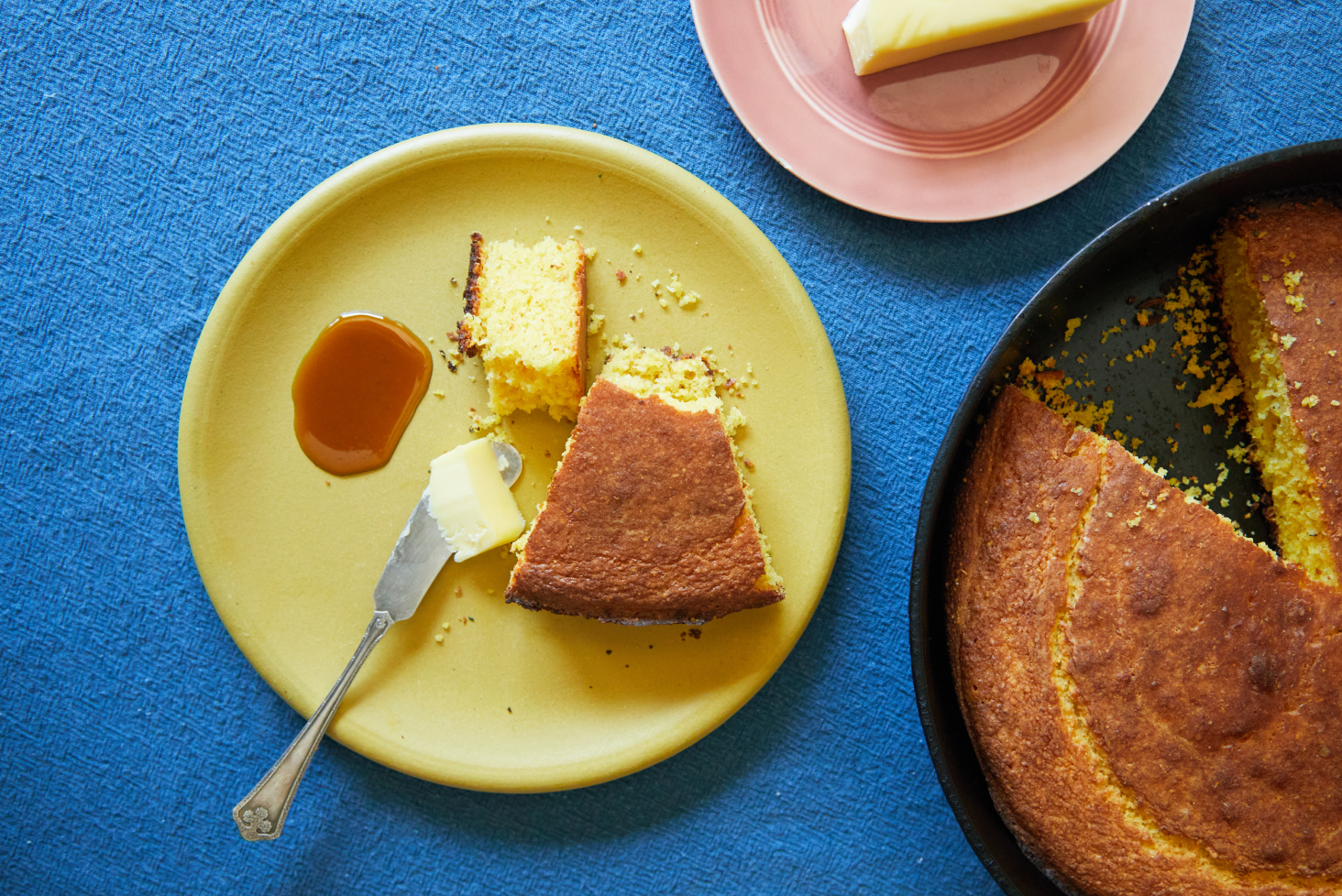Remembering Pableaux with Red Beans
By Jim Dixon


In New Orleans you eat red beans on Monday, and every week Pableaux Johnson made a big pot for an ever changing group of friends and strangers.
They’d grab a bowl, serve themselves from the pot on the stove, get a piece of cornbread from the cast iron skillet, and gather around the big table from his grandmother’s kitchen. The food was good - that’s a given in the Crescent City - but Pableaux really brought people together to talk. He went so far as to ban cell phones from the table since the point, as New Orleans writer Lolis Eric Elie wrote, “was to be present with red beans and friends and the dying art of unmediated conversation.”
Pableaux died on a Sunday in late January while taking photos at the Ladies and Men of Unity second line. It’s a small comfort knowing he was doing something he loved in his favorite place surrounded by people who loved him. But it’s still devastating.
Paul Michael Johnson was born in New Jersey, but his mother moved the family back to her home state of Louisiana after a divorce. Paul grew up in New Iberia, a small town on Bayou Teche south of Lafayette, much closer to his grandmother Elizabeth Hebert (pronounced A-bear), the family’s Cajun French matriarch of the kitchen. During his college years in San Antonio, Paul became Pableaux, a nod to both his Latino friends and Louisiana French roots.


He lived in Austin for a while, but came back to Louisiana to live in New Orleans. He wrote about food and did a little tech work, but spent most of his time taking pictures of the weekly Social Aid and Pleasure Clubs’ second lines. Uniquely New Orleanian, the SAPCs are mutual aid groups founded to help Black residents with things like insurance and funeral costs denied to them by white racism.
While “second line” originally referred to the non-family members of a funeral procession, for the SAPCs it’s their annual celebratory parade, a four hour march through the city’s neighborhoods filled with music, dancing, food, and drink. The clubs’ officers wear coordinated clothes with feathers and beadwork similar to the outfits of the Black Masking Indians. Pableaux photographed them all, and nobody did it better.



I met Pableaux in New York at the 2005 James Beard Foundation Journalism Awards when we were both finalists in the same category (then-LA Times food editor Russ Parsons won). A few years later one of our boys moved to New Orleans and met him at a second line. I reconnected with Pableaux a few months later over red beans and rice one Monday night at his tiny Uptown shotgun.
Over the years Pableaux fed us, introduced us to new friends at his Monday night dinners, showed me how he makes his famous turkey bone gumbo, led us to the neighborhoods where we’d see Mardi Gras Indians on St. Joseph night, and sent us photos of our grandsons.
Pableaux told me that “Cajun food isn’t sentimental,” but it’s about making what you’ve got taste good.
Pableaux helped me understand the food of Louisiana. When we took our first trip to Lafayette, the center of prairie Cajun culture, I asked him what I should eat for a real Cajun experience. He said, “Anything with gravy.” Pableaux told me that “Cajun food isn’t sentimental,” but it’s about making what you’ve got taste good. And if you need to make gumbo in a hurry, it’s okay to reach for Tony C’s instant roux.

Something will be missing the next time we’re in New Orleans. We won’t spend a Monday night sitting in the old church pew pulled up to that big table from his grandmother’s kitchen eating red beans and cornbread. But we will find a club second line and spend Sunday afternoon with his chosen family, ice cold beer in hand, shuffle dancing behind the brass band, and thinking about Pableaux.
Watch the Memorial Second Line Parade for Pableaux Johnson here
Photo credit goes to Red Beans Roadshow, Chris Granger, Scrumptiouschef.com, Pableaux Johnson, and Jim Dixon.

Pableaux’s Monday Night Red Beans And Rice
Turns out the secret to Pableaux’s legendary red beans is just… taking your time browning stuff—meat or no meat, you'll end up with a pot full of flavor.

Papa's Cornbread
“In honor of Achlle Leon Hebert Jr.,my maternal grandfather.”
A tender, golden skillet cornbread with a crisp crust and just a touch of sweetness, made the old-school way in honor of Pableaux Johnson’s grandfather.
